Viewpoint: Alberta's 'political earthquake' shocks conservatives
- Published
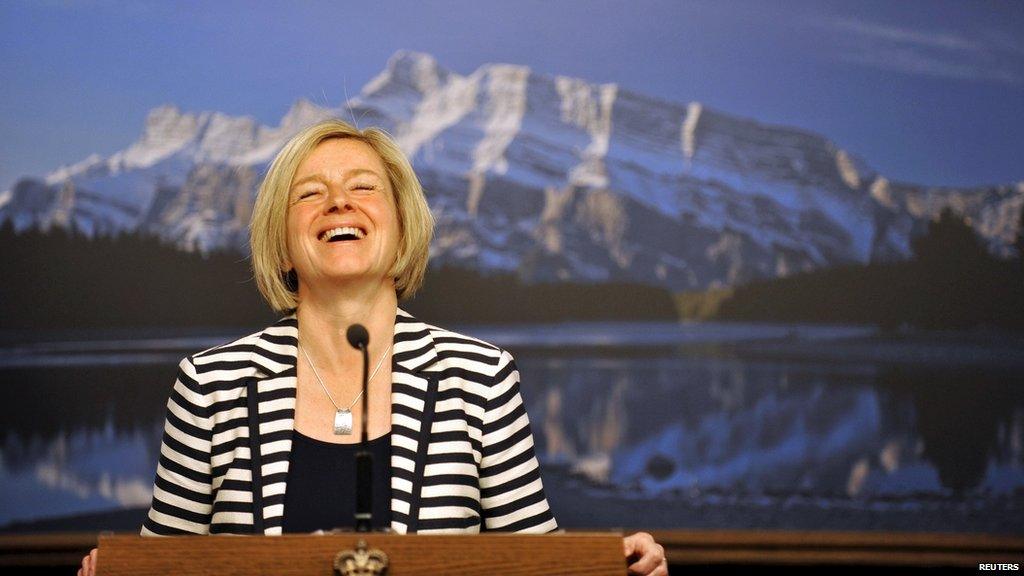
Rachel Notley's New Democratic Party have promised to invest more in health and education
The polls ahead of the election did not look good for Alberta's ruling party, but few expected such a rout.
Alberta witnessed a political earthquake last night. Premier Jim Prentice and the ruling Progressive Conservatives went down to defeat to Rachel Notley and the New Democratic Party.
The PCs were a political dynasty that had governed Alberta since 1971. But the party won only 11 seats (a drop of 59) to finish third. Meanwhile, the NDP skyrocketed from four seats to 53, enabling it to form a government here for the first time.
This reflected a major political shift as the province went from an established centre-right party to an inexperienced centre-left party.
Alberta, the major oil producing province in Canada, has been the country's major economic engine for several years. However, the precipitous drop in the price of oil created a $7bn Canadian dollar (£3.8bn) hole in the province's finances.
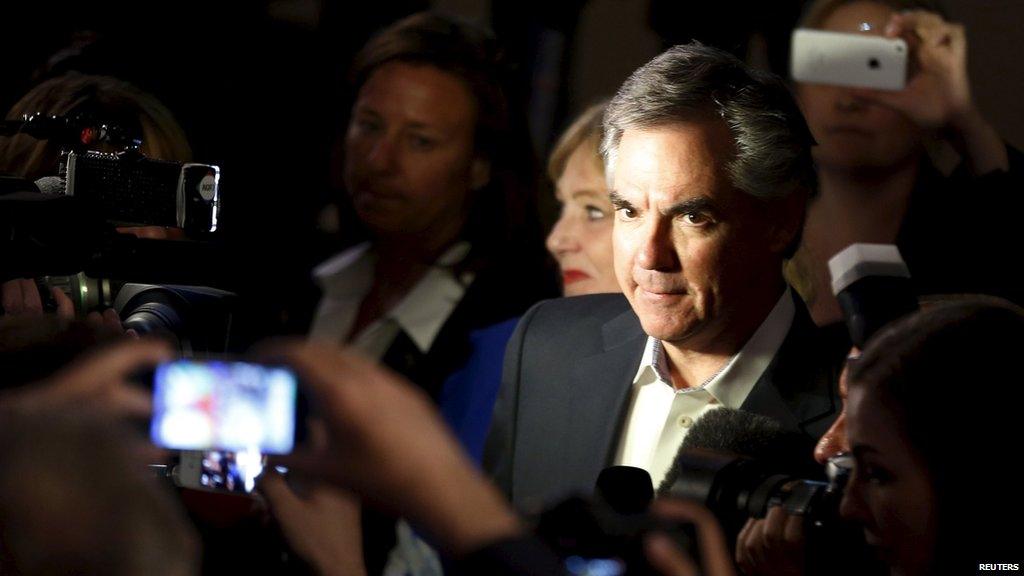
Jim Prentice's Progressive Conservative party's has governed Alberta since 1971
Mr Prentice decided to base his campaign on a budget that increased taxes/fees (except for corporations), slightly cut government spending, and ran a C$5bn deficit.
However, this budget angered many Albertans who responded by electing Ms Notley who campaigned with a different vision.
Ms Notley promised to raise corporate income taxes and personal income taxes on the wealthy, conduct a royalty review aimed at capturing more of the resource wealth for the province, and reinvest in health and education.
In the waning days of the campaign, the Alberta business community launched attacks against the NDP, threatening job losses, disinvestment, and the moving of corporate head offices, if the NDP was elected.
These attacks did not work, and likely backfired by creating more public support for the NDP. In the hours since Ms Notley's victory, the warnings from downtown Edmonton and Calgary have continued, setting up a clash between the business class and the newly elected NDP.
But Ms Notley is a pragmatist. Even with her tax increases, Alberta will continue to have the lowest taxes in Canada. On energy policy, despite the campaign rhetoric, there was plenty of common ground with the former Prentice government.
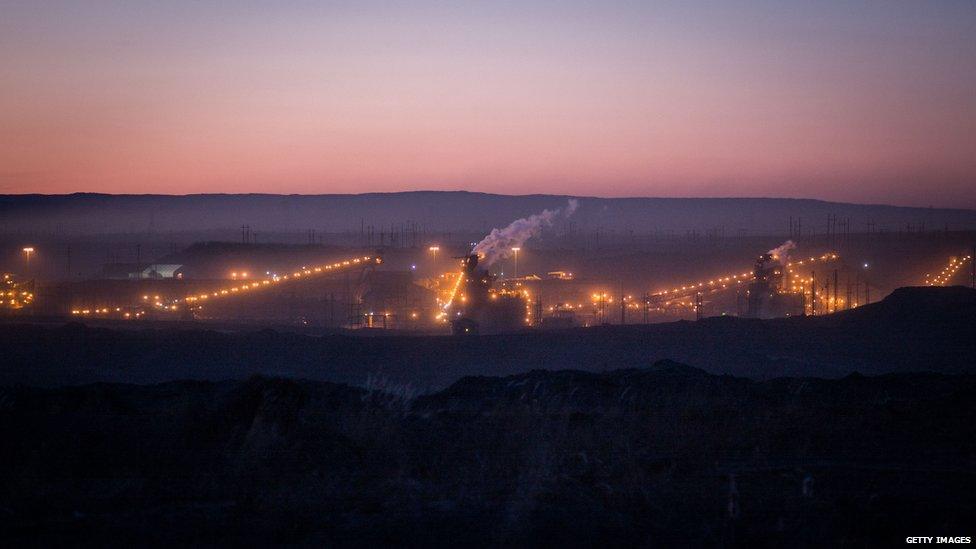
Alberta is facing a large budget deficit after a steep drop in oil prices
Ms Notley has acknowledged that Alberta is an energy economy and she supports some pipelines to get Alberta crude to market (such as the Energy East pipeline to Saint John, New Brunswick), but opposes others as not realistic (the Northern Gateway to Kitimat, BC and the Keystone XL to US refineries along the Gulf of Mexico).
On royalties, Ms Notley says that while she wants to review all aspects of the royalty regime, she would only raise rates when the price of oil and natural gas rises. Finally, Ms Notley has promised tougher environmental standards for the oil sands and the phasing out of coal plants for electricity. Both of those items are similar to previous statements that Prentice had made.
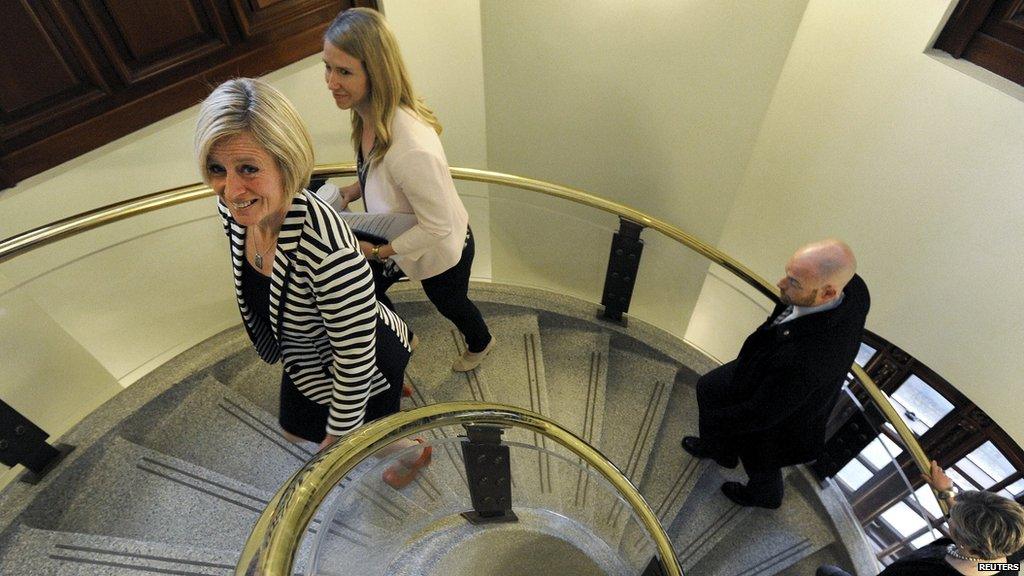
Ms Notley opposes the Keystone XL pipeline that would span from Canada to the coast of the Gulf of Mexico in the US
Ms Notley's victory in Alberta will have an impact on the Fall 2015 federal election. Federal NDP Leader Thomas Mulcair will hope to capitalize on Ms Notley's success by electing more NDP members (they currently hold only one seat in Alberta). In addition, he will try to convince other Canadians that if Alberta - the most right wing province - can elect an NDP government maybe Canada can too.
On the other hand, Conservative Prime Minister Stephen Harper is more popular in Alberta than Prentice was. In addition, the federal Conservatives are a united party, while in Alberta conservatives choose between two parties (the PCs and the Wildrose Party). So while the federal NDP may pick up an additional couple of seats the vast majority of Alberta's 34 seats will continue to go Conservative.
Mr Bratt is a politics professor at Mount Royal University in Calgary.
- Published7 May 2015
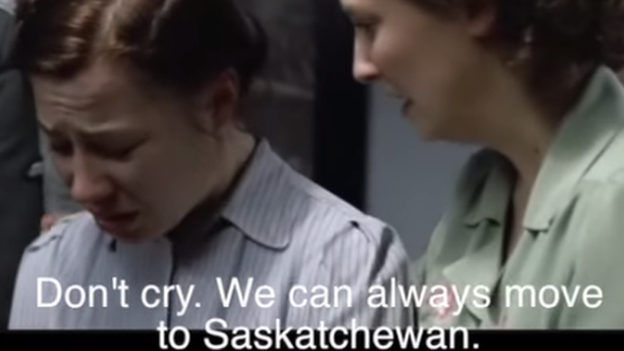
- Published6 May 2015
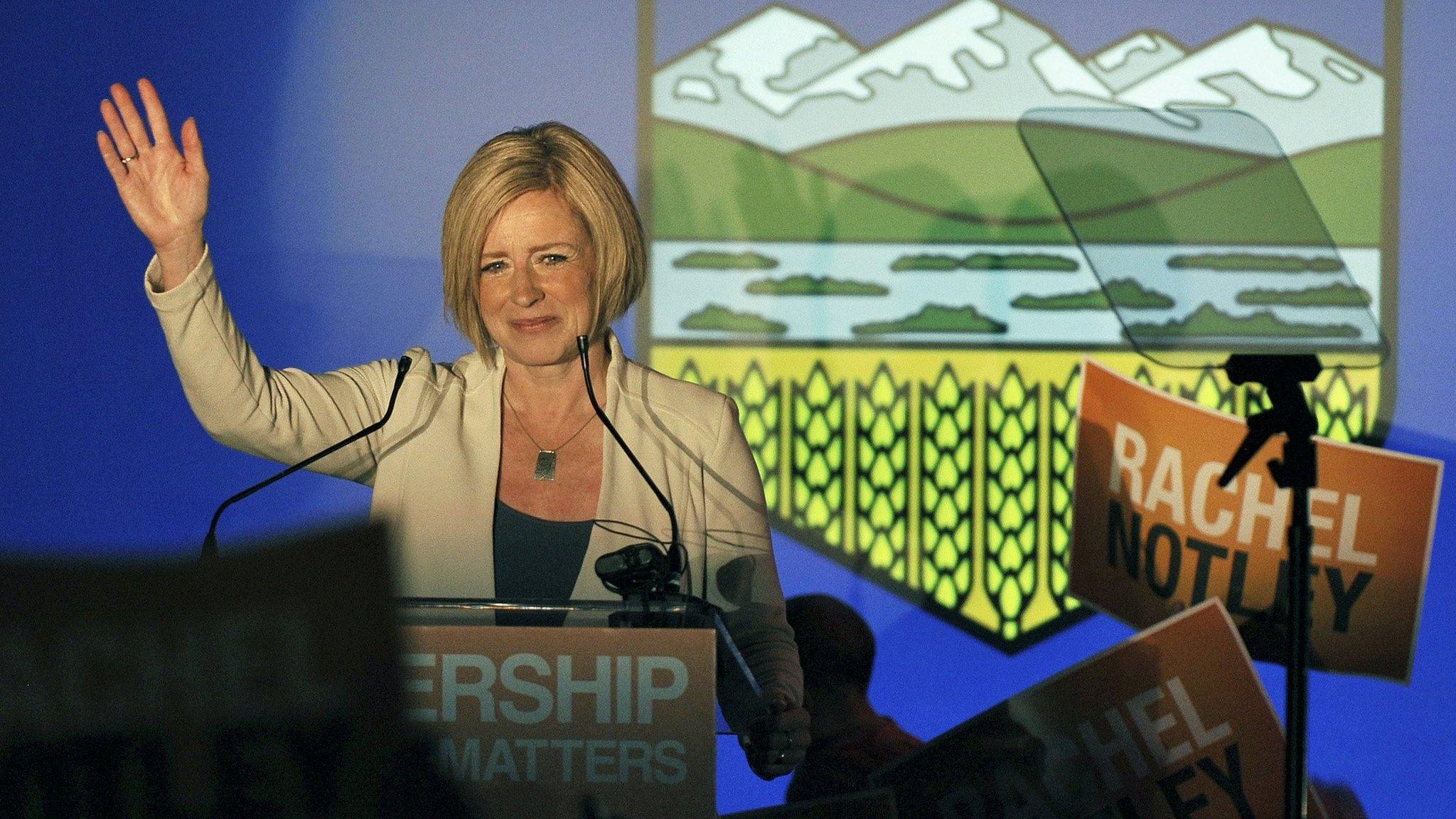
- Published10 October 2022